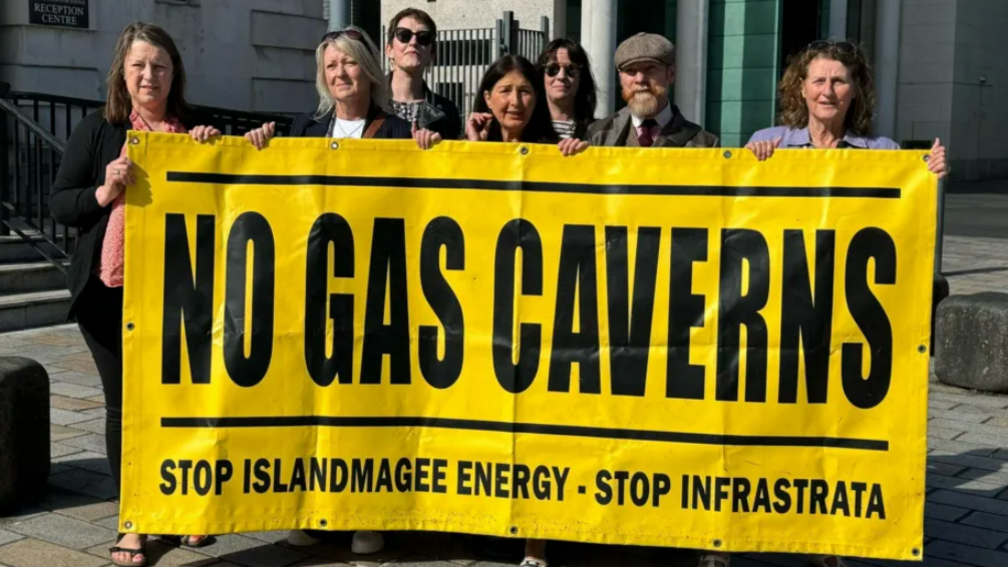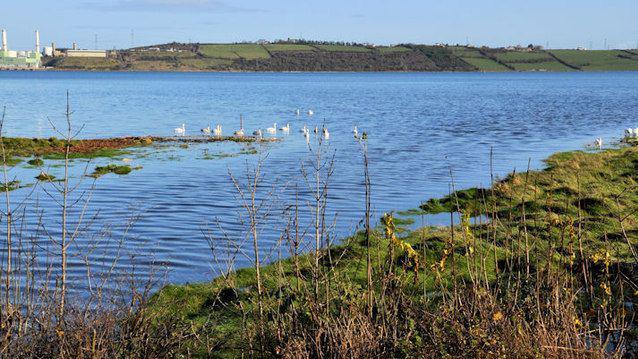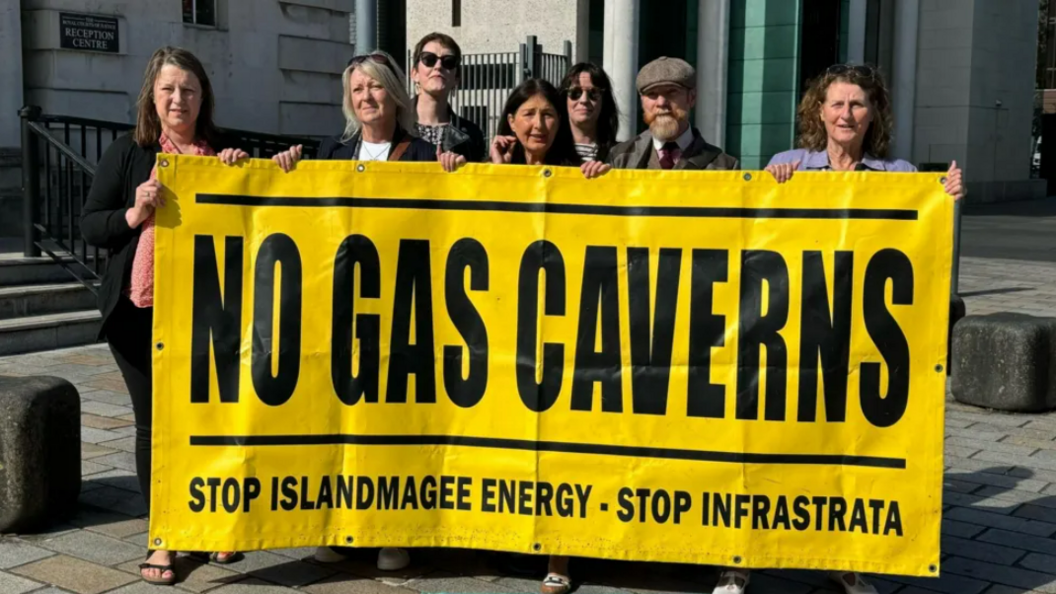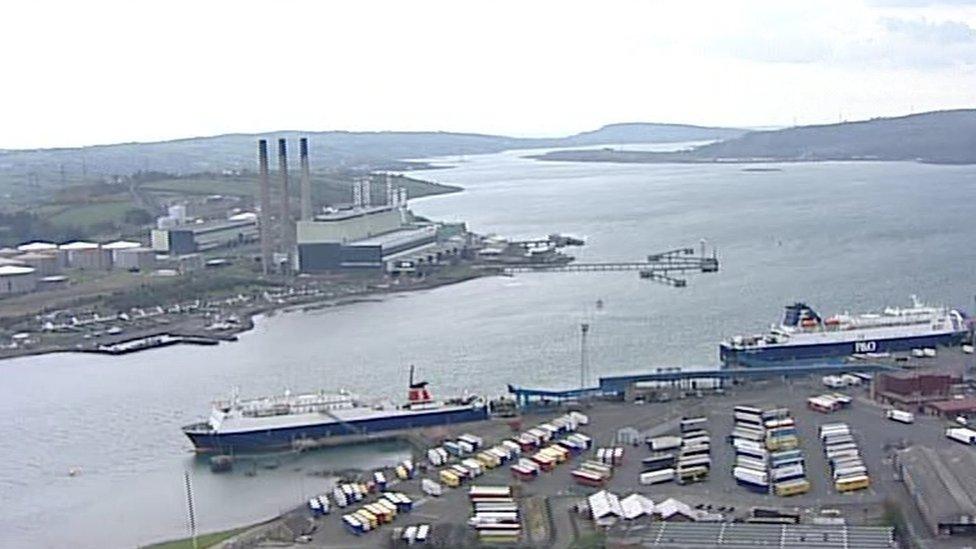Department seeks to challenge gas cavern ruling

Campaigners won a legal action against the underwater gas storage project in June
- Published
It is understood Stormont's Department of Agriculture, Environment and Rural Affairs (Daera) is to apply directly to the Supreme Court for leave to challenge a ruling on a gas storage project in Larne Lough.
Campaigners who won their legal action against the project in the summer have said they are “surprised and disappointed”.
The judgment, quashing permission for gas storage caverns under Larne Lough, means certain decisions on such projects must be taken by the executive rather than a single minister.
Daera had lodged an application with the Court of Appeal in Northern Ireland for permission to go to the Supreme Court, but that application was refused.

Larne Lough is a sea lough in County Antrim approximately 5.5 miles (9km) in length
The gas caverns project would have seen seven large caverns carved out under Larne Lough for natural gas storage.
The No Gas Caverns campaign group, supported by Friends of the Earth, won its appeal against the project in June 2024.
The Court of Appeal said a decision by the former Agriculture and Environment Minister Edwin Poots that the project was not significant or controversial was “irrational”.
It found that any decision to grant a marine licence should have been made by the Stormont Executive as a whole.
James Orr from Friends of the Earth described the decision to pursue the challenge against that ruling as surprising.
“This attempt impacts the community who yet again have to put their lives on hold to protect their coastline and marine life against the dirty fossil fuel industry," he said.
He added that the application was “another threat” to meeting Northern Ireland’s climate commitments.
Campaigners from the No Gas Caverns group said they were “dismayed and disappointed” at the prospect of any return to court.
In a statement, they said: “We are even more disappointed that Minister Muir, who has made public commitments to make the climate emergency his priority, is attempting to overturn the Court of Appeal decision which ensures that fossil fuel projects which go against our statutory climate change targets are considered by all ministers and are not subject to a decision of a single minister.”
The groups said they had “instructed their legal team to vehemently oppose the grant of permission to appeal”.
Analysis
The option to apply for permission to appeal this case to the Supreme Court was always open to the department and to the developers.
And the minister had expressed his concern about the constitutional implications, external of the ruling.
But the legal landscape around fossil fuel applications has been changing.
Legally-binding climate change obligations mean there will be consequences for governments that fail to meet targets.
The Court of Appeal’s judgment in this case, while focusing on the governance issue, did make reference to the climate change background.
And in a series of decisions, the Supreme Court has made clear its belief that decisions on fossil fuel-based planning applications must consider “downstream emissions” – the consequences of the combustion of fossil fuels.
If Supreme Court judges do agree to hear the department’s challenge, the decider may be whether they view the ruling through a constitutional or environmental lens.
Related topics
- Published27 June 2024

- Published6 February 2020
